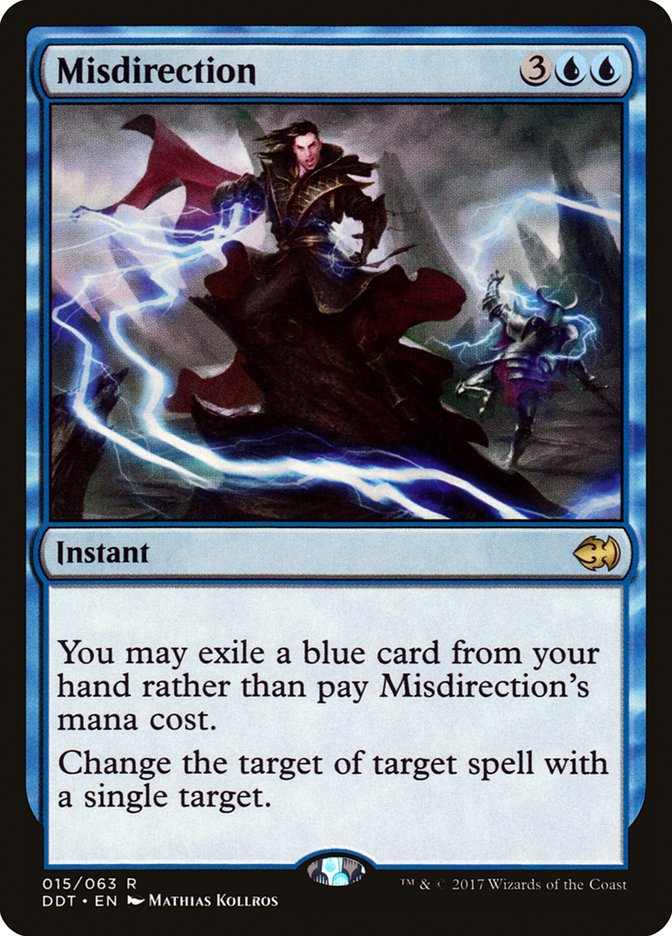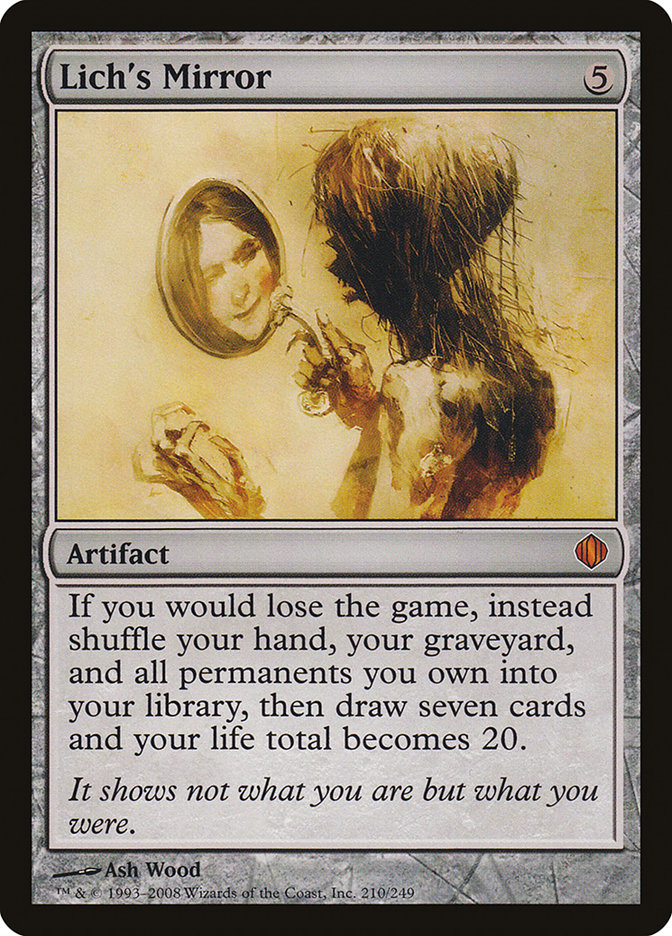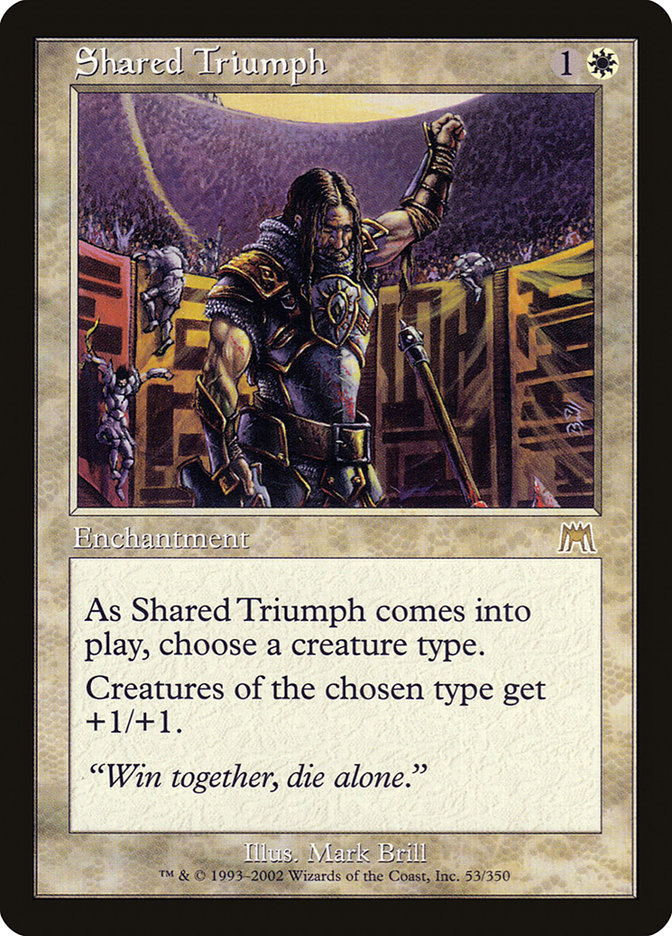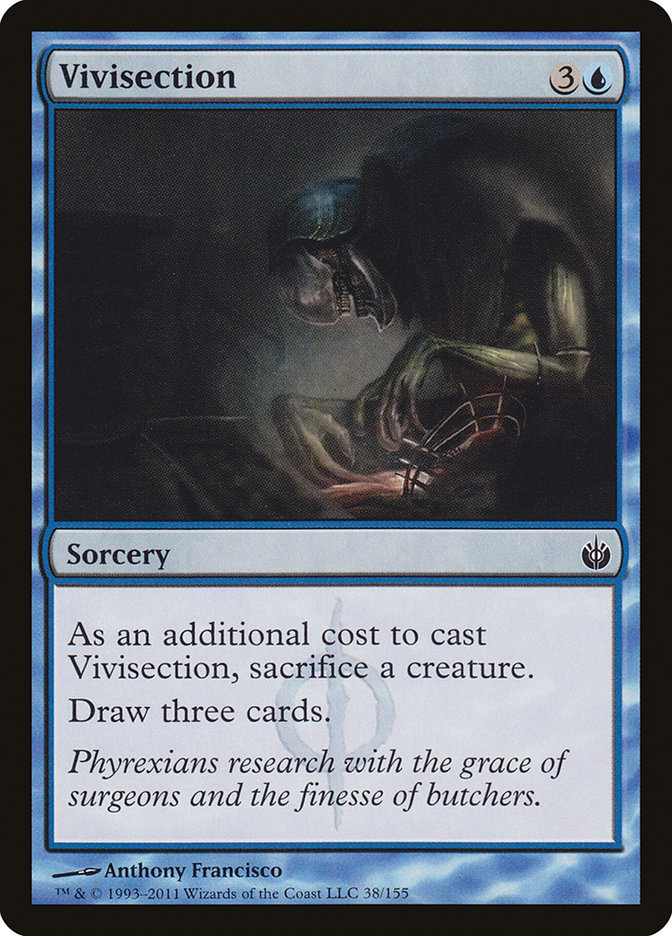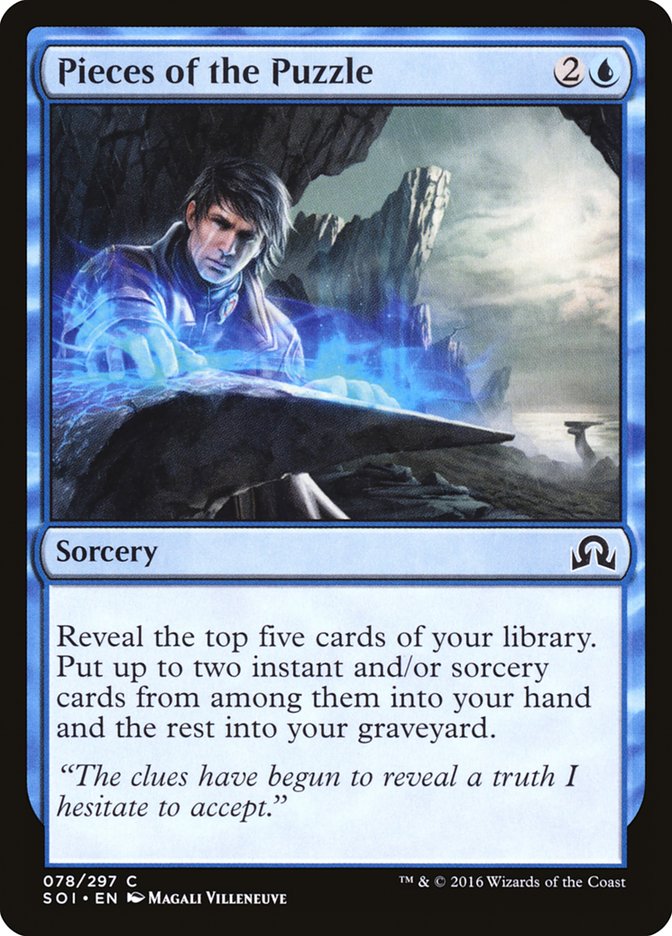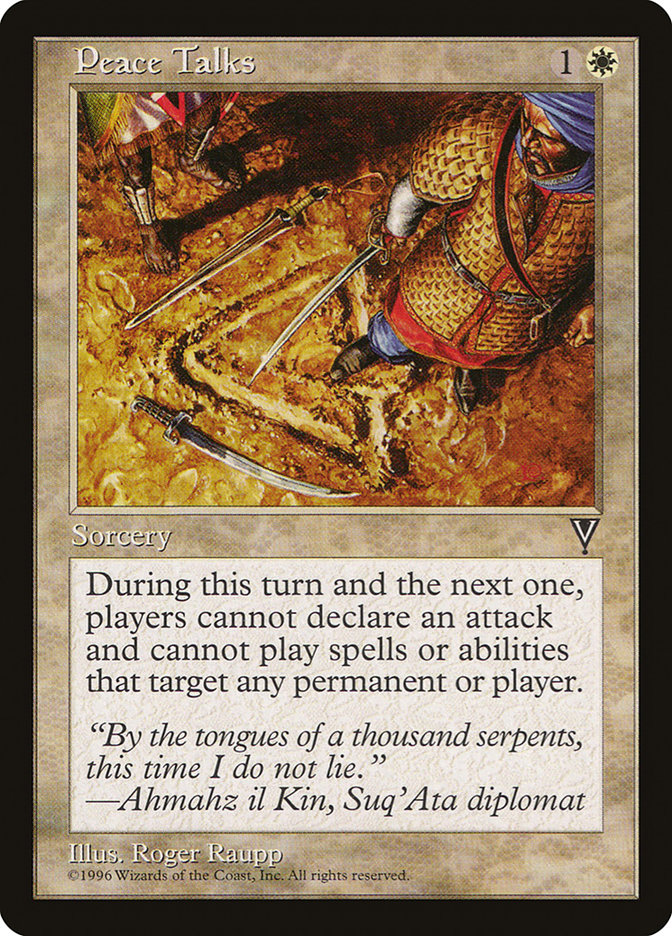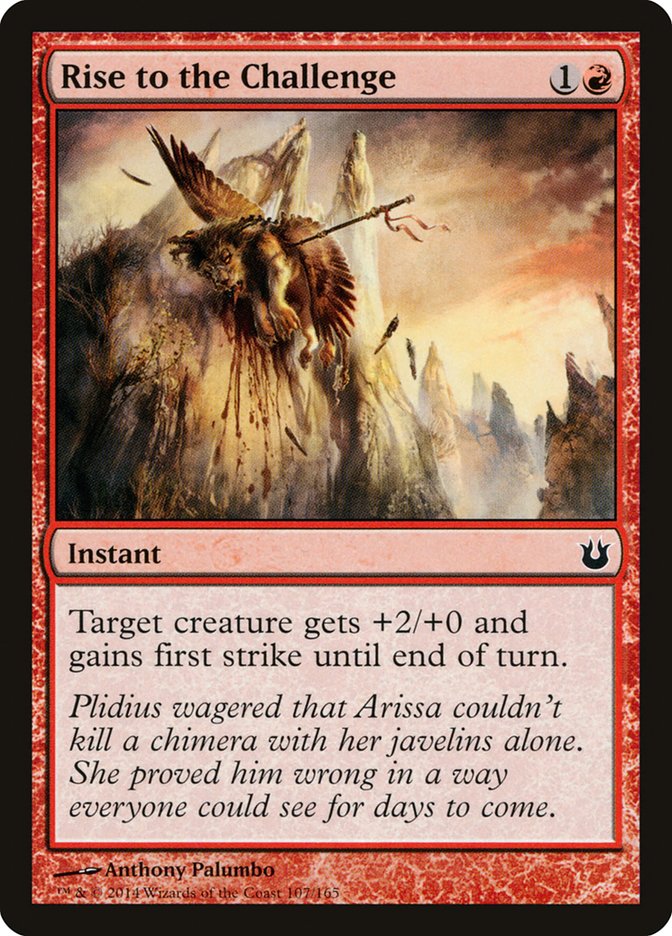Making goals in a competitive environment can sometimes feel like a fruitless endeavor. Want to qualify for the Pro Tour? Good luck, as you’ll still need to win that Regional Pro Tour Qualifier that’s eluded you all these years. Make Day 2 of a Grand Prix? Well, you still need to go 6-3 or better to make that happen.
The Goals You Shouldn’t Set
Tangible goals in Magic may feel like they help you find your path, but in reality they may be adding unneeded pressure when trying to perform. Even worse, these types of goals may impede you from working on the things that should’ve been your goals in the first place.
Focusing on tangible goals related to tournament results is the opposite of what you should do when reflecting on 2017 and looking forward to 2018. It’s not like you’ll be incapable of succeeding if you don’t say what you’re trying to accomplish, but it distracts you from how to actually get there. When you say you want to accomplish something, all of a sudden every win gets you closer, and every loss shoves you away. Wins and losses replace the improvements that will turn losses into wins.
Don’t overcomplicate things. Instead of thinking about what you need to accomplish to be great, do the things that create greatness, like setting these goals.
Goal #1: Don’t Invest Self-Worth into Tournament Results
When self-worth gets tangled with tournament results, it’s a disaster whether you do poorly or well. Good results come with a sense of inflated ego, as someone who invests their self-worth into results will need praise to feel good about their accomplishment. They’ll put on airs at the local game store. They may start sentences like this: “That reminds me of the SCG Open/Grand Prix I made Top 8 at.”
I really don’t need more examples. You know what I’m talking about.
Meanwhile, poor finishes come with a sense of embarrassment or, worse, resentment. Topdecks, pairings, mulligans, and anything else become evidence of just how unlucky they got. The thought of mistake having anything to do with the result is ridiculous. Well, maybe they made a few, but it wouldn’t have mattered anyway!
Investing self-worth into a tournament will hinder your ability to evaluate the tournament objectively. Instead of spending Sunday night or Monday morning discussing if you metagamed correctly, built your sideboard well, or even prepared for a certain matchup properly, it will be spent gloating or complaining. Neither is beneficial in the long marathon that is professional Magic.
Now, I don’t want you to think you should become a robot (like Ben Stark). You should enjoy the highs, but understand that accomplishment doesn’t equate to perfection. I’ve played great and not made Day 2 of an event, and I know we’ve all played like literal garbage and won matches on more than one occasion. Results don’t define you one way or another.
It’s tough to stop investing your self-worth into tournaments at first, but trust me: it gets easier as time goes. Eventually you’ll stop and easily be able to dissect your game, no matter how intrusive you may think it will be. You’ll begin to enjoy telling your friends how badly you played and whether they can help you find what went wrong. You’ll stop blaming external issues for results and begin to realize that maybe your sideboard isn’t built how it should be. You may even stop defending that pet deck you know deep down isn’t worth your time. Whatever it is, when you stop looking at the whole picture to dig deeper you’ll be able to fix tiny issues you never thought existed.
On the subject of getting better, how does one do that? Well, one of the most cliche answers to this question is “surround yourself with competent players and play as much as possible.” This answer is easy and often said without conviction. Don’t buy into this lackluster answer. Of course playing more and doing it with better players will lead to improvement, but not everyone has unlimited resources to put into Magic.
Goal #2: Dissect Every Decision
What will help, no matter what level you’re on, is evaluating everything, and I mean everything.
After you play in a tournament, don’t just move on to the next one. Go back and try to find mistakes, not just in what happened in games but in all the decisions that went into the event. Did you metagame correctly? Go check out what the metagame was, and analyze how off you were. Did that affect how your deck was built and cause you to have an inferior build compared to those who excelled? What build do you believe was better, and why do you think they came to those conclusions that got them to that design?
What were the reasons to which you were unable to come to those same findings? Was it lack of preparation time? Could it have been bad advice from those around you? Maybe you were just stubborn and thought a matchup was better than it actually was. Perhaps you emotionally added too many sideboard cards for a matchup you simply dislike losing to, and that cost you points against a more threatening deck.
It’s difficult to always retrospectively evaluate tournaments with an untarnished mindset. The easiest way to get around the rationalizing mind is to write up a battle plan the night before an event. Think of it like a miniature tournament report you read on this very website. Document what list you’re going to play, why you chose it, what you did to prepare for the event, what you think the metagame will be, and how you plan to sideboard in every matchup. Sometimes this exercise will even lead to refining your list and strategies before the event itself. At the very least it will give you an objective look at your pre-tournament ideas and opinions that you can sift through later, unaffected by hindsight bias.
Doing this will help you develop an analytical perspective on preparation. You’ll begin to streamline the limited time you have for preparation, as you’ll begin to sidestep common mistakes you previously didn’t know you made going into every tournament. You won’t need a large group to prepare with, as you’ve begun to find a way for practice to cater to you. Slowly but surely you’ll find kinks in your process and weed them out. Eventually you’ll see more of the puzzle, and that right there is a step to becoming better at the game.
Goal #3: Find All the Puzzles
In the past few years, a new concept on explaining good gameplay emerged in the form of puzzle solving. No, this does not have anything to do with Puzzle Quest.
The idea is that the first goal in decision-making is not to find the answer to what to do, but rather to identify all the puzzles being presented. Sometimes it’s simply which land to play on Turn 1, which isn’t very interesting, but other times it can be extremely complex, with multiple puzzles within puzzles on a crucial turn.
Missing an on-battlefield trick is missing a puzzle. Forgetting they kept up two mana on Turn 4 in the Temur Energy mirror and thus not playing around Abrade and Harnessed Lightning on a later turn is missing a puzzle. Finding that puzzle could very well have stopped you from making a bad play and thus given you a better chance to win a game.
Some puzzles are mechanical, others judgmental, but they all exist. Your job is to identify as many as you can.
This has slowed my game down. Well, I’d like to blame old age, but lately I feel like I see so much more in a game of Magic than ever before. Numerous possibilities flood my brain, and I try to dissect them all as quickly as possible. Now, this doesn’t excuse my slow behavior in the slightest, and I’ve become aware that I need to find a way to play more quickly, but the fact remains that I feel like I’m aware of vastly more in a game of Magic, which bogs me down.
This is a difficult principle to implement, as it sounds like you should think about all the possibilities before executing one of them. In reality, it’s understanding that you may not be capable of seeing all the possibilities in the first place, and that’s what you should work on. The less you miss, the easier it is to make an informed decision. But finding what you normally miss isn’t easy, and it’s only possible after you properly execute the first two goals in the article.
Goal #4: Defend Your Beliefs After Understanding Theirs
This goal transcends competitive Magic, making it all that much more vital to work on.
Knowing the correct thing to do is important, but when disagreements occur, the “whys” become much more important to understand. For example, why do people think it’s not correct for them to play Temur Energy? You can simply believe they’re wrong, or you can ask them. You can try to understand why they think that way and possibly find something to internalize from the conversation, even if it’s just to not do the thing they do in the future, like fearring mirrors. When disputes in our community come up, maybe some time should go into figuring out why people have opposing viewpoints.
Your ideas are important, but they do not supersede others’ opinions simply due to not being yours. This applies even if you’ve been correct more times than not in the past with the individual, or the topic. There’s a chance you’re wrong. There’s a chance you’re not. The truth will be easier to identify if you know where they’re coming from. Understand their ideas then proceed however you deem worthy. The dialog will help both parties.
No one wants you to be right when you start by telling them they’re wrong.
Sadly, not everyone is willing to do this. Some just need their opinions to be respected, but that’s not your burden or your fight. If someone is not willing to hear your opinions, just move on without inflaming the situation. It’s their toxicity, but your choice to be infected by it.
In the end, all four of these goals merge into one major task: be open to more ideas and possibilities. Don’t get rigid in your beliefs, and always be willing to be wrong. Almost get excited at the possibility you’re wrong and thus get to improve in some way, and be willing to improve however possible. Those unwilling to understand additional viewpoints will have the most difficult lives.
Perception isn’t like riding a bike. You have to constantly keep re-learning things so that your foundation for decision-making doesn’t end up tainted and outdated. Always be aware that there’s something you could get better at. Always be willing to get better.
Always be willing to set a new goal.


